PHY 202: Electric Circuits and Electronics Unijos Handout, Pdf is typically an intermediate-level physics or engineering course focused on understanding the principles and applications of electric circuits and electronics. Here’s a general overview of what such a course might cover:
Course Topics
- Basic Electrical Concepts
- Charge, current, voltage, and resistance
- Ohm’s Law
- Direct Current (DC) Circuits
- Series and parallel circuits
- Kirchhoff’s Voltage and Current Laws
- Thevenin’s and Norton’s Theorems
- Capacitance and Inductance
- Capacitors and inductors in DC circuits
- Transient analysis of RC, RL, and RLC circuits
- Alternating Current (AC) Circuits
- Sinusoidal signals, phasors, and impedance
- AC power, RMS values
- Resonance in RLC circuits
- Semiconductor Devices
- Diodes, transistors, and their characteristics
- Operation and applications of semiconductor devices
- Operational Amplifiers
- Ideal op-amp characteristics
- Basic op-amp circuits (inverting, non-inverting, summing, differential, etc.)
- Digital Electronics
- Logic gates and Boolean algebra
- Basic combinational and sequential circuits
- Electronics Applications
- Analog-to-digital and digital-to-analog conversion
- Filters, oscillators, and signal processing
Learning Objectives
- Understand and apply fundamental principles of electric circuits.
- Analyze and solve problems involving both DC and AC circuits.
- Gain proficiency in using various electronic components and devices.
- Develop practical skills through laboratory experiments and simulations.
- Apply theoretical knowledge to real-world electronics applications.
Assessment Methods
- Exams and Quizzes: Testing understanding of theoretical concepts and problem-solving skills.
- Laboratory Work: Hands-on experiments to reinforce theoretical knowledge and develop practical skills.
- Assignments: Homework problems and projects to apply concepts learned in lectures.
- Participation: Engagement in class discussions and activities.
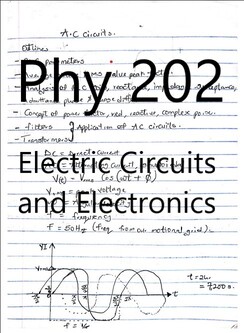
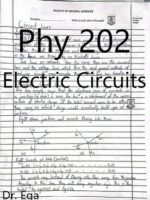

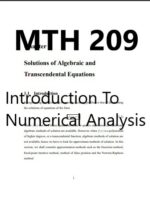
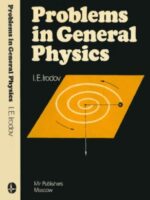
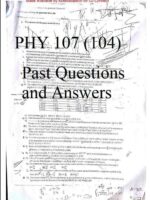
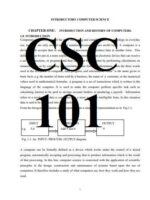
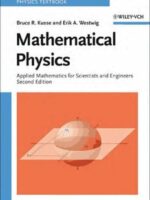
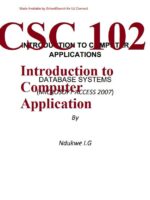
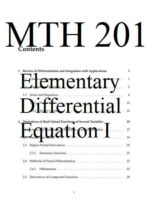
Be the first to review “Phy 202: Electric Circuits and Electronics”